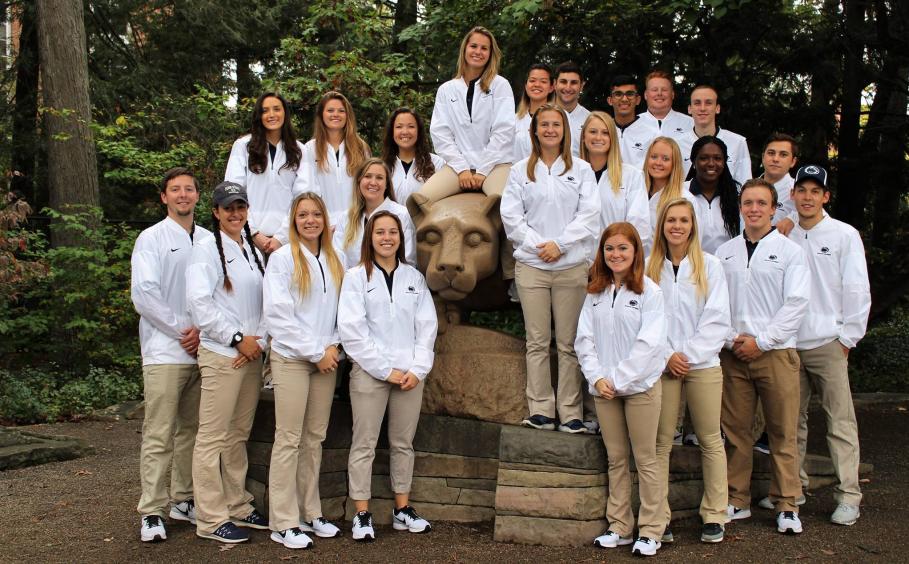-
About
Explore
-
Undergraduate
ExploreUp a level (this gets replaced in JS)
-
Getting Started
Explore
-
Future and Current Students
Explore
-
Get Connected
Explore
-
Get Involved
Explore
-
Diversity and Inclusion
Explore
-
Academic Advising
Explore
- Visit and Apply
- Student Profiles
- Donate
-
Getting Started
-
Graduate
Explore
-
Research
Explore
-
Alumni
ExploreUp a level (this gets replaced in JS)
-
Get Involved
Explore
-
Achievements
Explore
- Contact
- KINES News
- Donate to KINES
- Update Your Contact Information
-
Get Involved
-
Outreach & Service
Explore
-
Contact
Explore
-
Departments
Explore
-
Research Centers
Explore
-
Central Administration
Explore
-
Training and Support
Explore
- Contacts/Directory
Search 
Student Outcomes

Student Learning Outcomes
The Master of Athletic Training program learning outcomes prepare students to:
- Exhibit the essential knowledge, skills, attitude, and habits required to deliver exceptional health care as an entry-level athletic trainer. (Goal 1 of GCAC-201)
- Advance evidence-informed practice through knowledge translation processes. (Goal 2 of GCAC-201)
- Display attributes that nurture effective inter-professional collaborative health care teams and systems. (Goals 2, 3, and 4 of GCAC-201)
- Critique research and other sources of information through relevant appraisal tools to determine efficacy, efficiency, and ethicality of applications in contemporary patient/client care. (Goals 3, 4, and 5 of GCAC-201)
- Promote a culture of excellence through professional behaviors consistent with the National Athletic Trainers’ Association Code of Ethics, servant leadership, and meaningful lifelong learning. (Goal 5 of GCAC-201)
Accreditation and Outcomes
Accreditation
The Professional Athletic Training Program is a competency-based degree accredited by the Commission on the Accreditation of Athletic Training Education (CAATE). The curriculum earned initial accreditation in 1997, and reaccreditation in 2008 and 2019. The next accreditation review, including site visit, is scheduled for the 2028-2029 cycle.
Outcomes
Basic program information that includes recent rates for passing the national BOC exam, matriculation, and post-graduate placement are archived by the CAATE.
